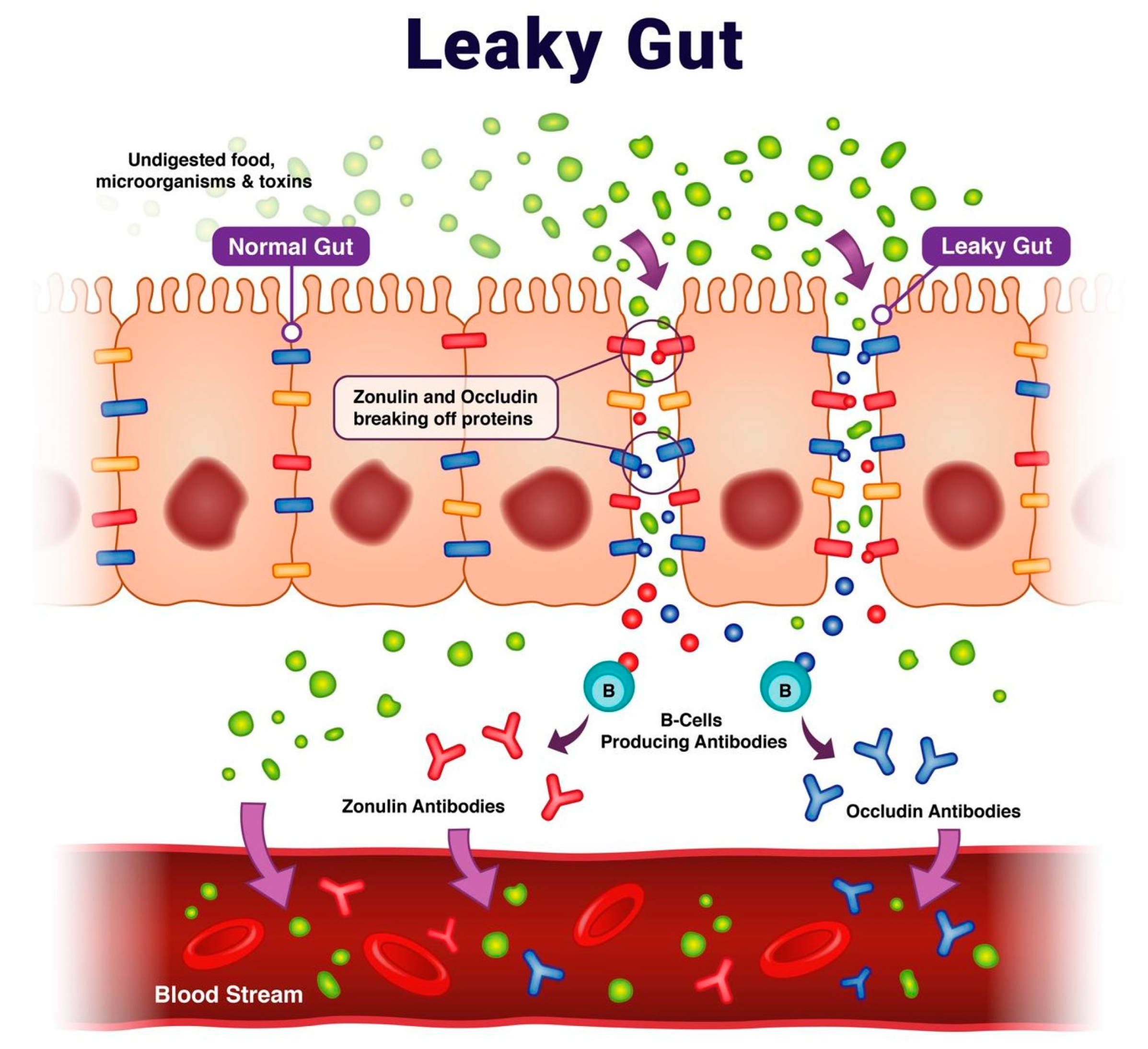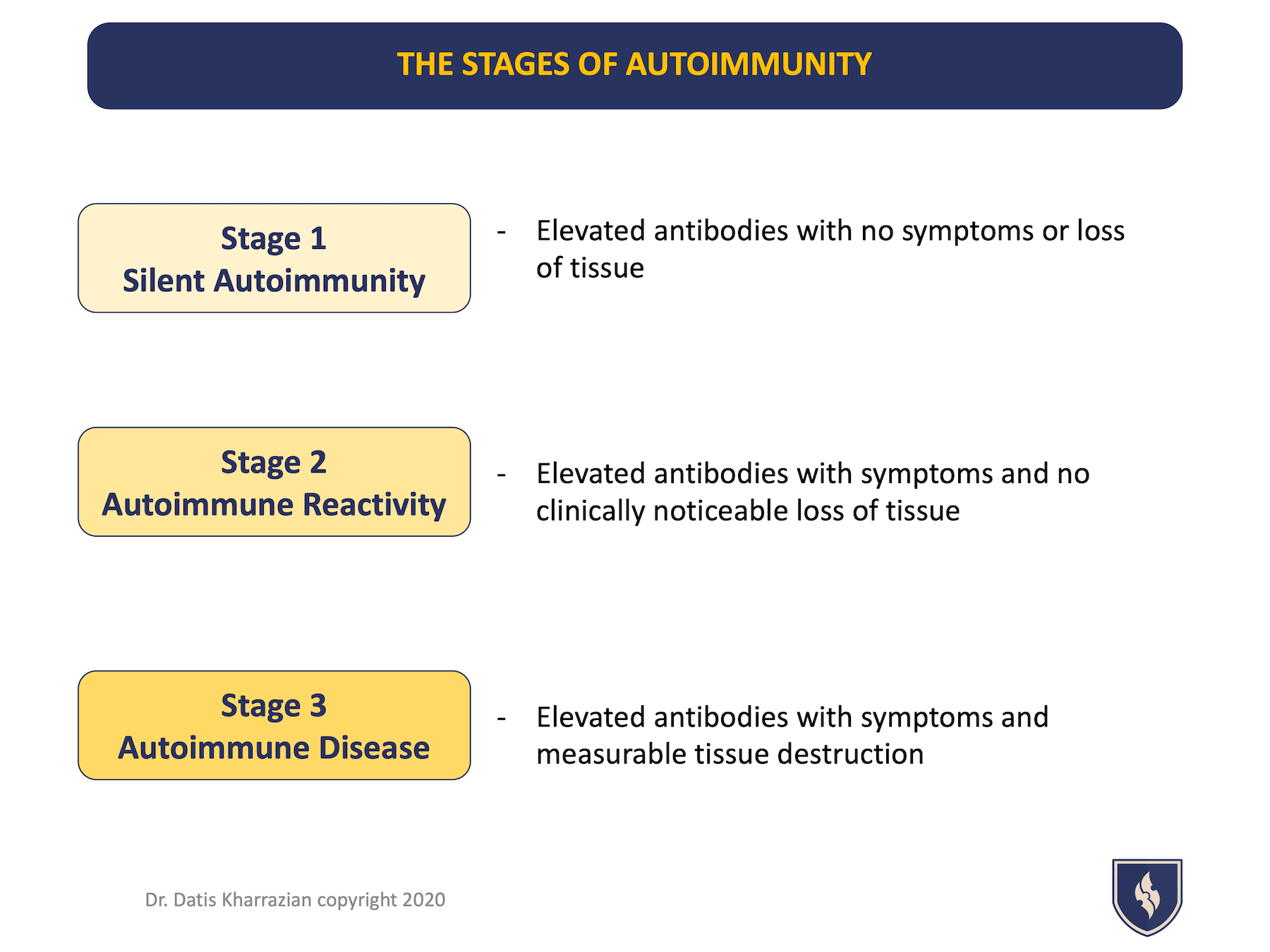Discover the connection between leaky gut syndrome and autoimmune diseases, and how this condition can significantly impact your immune system.
Understanding Leaky Gut Syndrome
Leaky gut syndrome, also known as increased intestinal permeability, is a condition that affects the lining of the intestines. Normally, the lining acts as a barrier, allowing nutrients to be absorbed while keeping harmful substances out. However, when the lining becomes compromised, it can lead to a variety of health issues.
 The Link to Autoimmune Diseases
The Link to Autoimmune Diseases
One of the major consequences of leaky gut syndrome is its association with autoimmune diseases. Autoimmune diseases occur when the immune system mistakenly attacks healthy cells and tissues in the body. The exact cause of autoimmune diseases is still unclear, but research suggests that leaky gut syndrome may play a significant role in their development. A recent study co-authored by one of my mentors, Dr. Datis Kharrazian, in the journal, International Journal of Molecular Sciences found a damaged intestinal barrier, or leaky gut, can lead to 30-fold increased odds of developing autoimmunity.
How Leaky Gut Syndrome Affects the Immune System
Leaky gut syndrome can have a profound impact on the immune system. When the intestinal lining becomes permeable, it allows undigested food particles, toxins, and bacteria to leak into the bloodstream. This triggers an immune response, leading to chronic inflammation and an overactive immune system. Over time, this chronic inflammation can contribute to the development of autoimmune diseases.
The intestinal walls consist of epithelial cells, which absorb nutrients from food while preventing harmful compounds from passing into the bloodstream.
The intestinal walls are fortified by the presence of occludin tight junction molecules, which act as gatekeepers to prevent harmful pathogens from infiltrating the bloodstream. These tight junctions are regulated by zonulin, a crucial protein that serves as a messenger, signaling when it's time to open or close the junctions.
As the gut becomes damaged, occludin and zonulin become entangled in the tissue damage. In response, the immune system produces antibodies to eliminate the deceased and impaired cells. Consequently, we can detect intestinal permeability through laboratory testing by examining the elevated levels of zonulin and occludin.
Key Findings of the Study
The study, The Relationships between Intestinal Permeability and Target Antibodies for a Spectrum of Autoimmune Diseases, investigated whether these markers of intestinal permeability relate to markers of autoimmune reactions.
The study authors investigated the lab results of 266 random subjects tested for:
- Occludin antibodies
- Zonulin antibodies
- 24 tissue antibodies indicative of various forms of autoimmunity.
The study revealed a significant finding - individuals with leaky gut syndrome had a staggering 30-fold increased risk of developing autoimmunity compared to those without the condition. Furthermore, they exhibited elevated levels of autoimmune antibodies in 17 out of 24 markers, including antibodies against the brain, hormone glands, joints, smooth muscles, cardiovascular tissue, and more. This highlights the wide-ranging impact of leaky gut on the immune system and its potential contribution to autoimmune diseases.
According to the study, there is a direct correlation between the levels of leaky gut antibodies and autoimmune antibodies. Essentially, the more severe your leaky gut, the higher your risk for developing autoimmunity.
LEAKY GUT: A POTENTIAL CULPRIT FOR NEUROLOGICAL AUTOIMMUNITY
Furthermore, the study also revealed an intriguing connection between zonulin and occludin antibodies and neurological autoimmunity. Similar to the gut barrier, the brain has its own protective barrier that allows necessary substances to enter and exit while shielding the brain from harmful pathogens. This barrier, known as the blood-brain barrier, also relies on the presence and function of zonulin and occludin.
Emerging research suggests that a breakdown of the blood-brain barrier can contribute to neuroinflammatory disorders, brain degeneration, and the development of autoimmune conditions targeting the brain. Previous studies have even found a correlation between advanced intestinal permeability, often seen in leaky gut syndrome, and conditions like multiple sclerosis. These findings align with the study authors data, further emphasizing the potential link between leaky gut and autoimmune reactions in the brain.
Leaky gut and bone and joint autoimmunity
Leaky gut syndrome has also been found to contribute to the development of autoimmune reactions targeting bone and joint tissue. Emerging research indicates that increased intestinal permeability can lead to the dissemination of bacteria that trigger inflammation in the bones and joints.
LEAKY GUT AND AUTOIMMUNITY TARGETING THE THYROID, LIVER, PANCREAS, GLANDS, AND INTESTINAL HEALTH
Additionally, this study provides further evidence supporting previous research that has found a strong connection between markers of leaky gut and various autoimmune diseases, including type 1 diabetes, autoimmune thyroid disease, adrenal autoimmunity (Addison’s disease), ovarian/testicular autoimmunity, primary sclerosing cholangitis, autoimmune hepatitis, gastric autoimmunity, and chronic inflammatory bowel diseases.
UNDERSTANDING THE PROGRESSION OF AUTOIMMUNITY
 Autoimmune antibodies alone do not always indicate the presence of an autoimmune disease or any associated symptoms. From a clinical standpoint, there are three distinct stages in the progression of autoimmunity:
Autoimmune antibodies alone do not always indicate the presence of an autoimmune disease or any associated symptoms. From a clinical standpoint, there are three distinct stages in the progression of autoimmunity:
Stage 1: At this stage, individuals have positive antibodies but do not experience any symptoms or have a diagnosed disease.
Stage 2: In this stage, individuals have elevated antibodies and may experience symptoms, but their condition has not yet progressed to a point where medical intervention is necessary.
Stage 3: At this stage, individuals have elevated antibodies and their autoimmune damage is extensive enough to be diagnosed as a disease and require medical treatment.
Understanding these stages is crucial in determining the appropriate approach to managing autoimmunity and preventing its progression.
Whether you find yourself in Stage 1 or Stage 2 of autoimmunity, there is hope for preventing its progression. By focusing on repairing your leaky gut, identifying the triggers that contribute to autoimmune reactions, and adopting a diet and lifestyle that reduces inflammation, you can potentially halt the development of the disease. On the other hand, if you are already in Stage 3, implementing strategies that suppress autoimmune expression can help prevent further deterioration of your condition. It's important to take proactive steps towards managing autoimmunity and protecting your health.
Factors Contributing to Leaky Gut
Leaky gut doesn't just magically happen. After thorough research and clinical practice, Dr. Kharrazian has discovered various factors that contribute to this condition. These factors encompass a range of influences, such as:
- Gluten sensitivity
- Sensitivity to other foods (dairy, egg, soy, lectins, etc.)
- Gut infections—bacterial, parasitic, or fungal
- Hormonal deficiencies or imbalances
- Past brain injury; brain development or degeneration issues
- Blood sugar instability—chronically high or low blood sugar
- Low blood pressure
- Gut autoimmunity
- Chronic stress
- Chronic sleep deprivation
- Corticosteroids, antibiotics, NSAIDs, and other drugs
- Alcohol consumption
- Glutathione deficiency
- Vitamin D deficiency
- Dysbiosis (imbalance of bad bacteria)
Understanding the specific underlying factors that contributed to the development of your leaky gut is crucial in determining the best approach to address the issue. Each person's situation is unique, and the strategy for someone with a past brain injury will differ significantly from that of someone who recently took antibiotics. The exciting part is that by targeting not only the leaky gut itself but also the root cause, you can make significant improvements in your overall health and well-being.
By now, I hope you understand the gravity of leaky gut syndrome. It's not something to be taken lightly or dismissed as a passing trend. Leaky gut can have a profound impact on your health and potentially shape the course of your life. Ignoring the signs and failing to address your leaky gut can have serious consequences, potentially triggering or worsening an autoimmune condition.
If you want to find out more, check out what makes my philosophy unique among health care providers.
Always remember one of my mantras, "The more you know about how your body works, the better you can take care of yourself."
For more details about the natural approach I take with my patients, take a look at the book I wrote entitled: Reclaim Your Life; Your Guide To Revealing Your Body's Life-Changing Secrets For Renewed Health. It is available in my office or at Amazon and many other book outlets. If you found value in this article, please use the social sharing icons at the top of this post and please share with those you know who are still suffering with chronic health challenges, despite receiving medical management. Help me reach more people so they may regain their zest for living! Thank you!
ALL THE BEST – DR. KARL R.O.S. JOHNSON, DC – DIGGING DEEPER TO FIND SOLUTIONS
References:
- Kharrazian D, Herbert M, Lambert J. The Relationships between Intestinal Permeability and Target Antibodies for a Spectrum of Autoimmune Diseases. International Journal of Molecular Sciences. 2023; 24(22):16352. https://doi.org/10.3390/ijms242216352



